Immunization Schedules and Vaccines
Getting all your vaccines can help you and your children stay healthy. Vaccines are safe and can prevent many diseases when you are vaccinated on time.
During a checkup, you can talk to your doctor if you have any questions or concerns about vaccines for yourself or your children.
Need to find a doctor?
We can help you find the right doctor to see near you.
Alliance members can earn up to $250 in gift cards for completing their child’s checkups and vaccines from ages 0 to 21. For more information, visit our Healthy Start page.
Vaccines for Children and Teens (Birth through 18 Years Old)
Protect your children from serious illnesses as they grow. Call your child’s doctor to schedule their next checkup and get them caught up on vaccines.
Vaccines can protect children and teens from things like:
- 6 types of cancer.
- Influenza.
- Measles.
- Hepatitis A and B.
- Chickenpox.
- Mumps.
- Polio.
- Smallpox.
Track your baby’s vaccines and checkups
If you have a baby 0-12 months old, our infant wellness map can help you track your child’s checkups and vaccines.
If you are an Alliance member, you can get a printed version of the Infant Wellness Map. Call the Alliance Health Education Line at 800-700-3874, ext. 5580. They are offered at no cost to Alliance members and can be mailed to you.
CDC immunization schedule
The CDC has a recommended child immunization schedule for children from birth through 18 years old. You can see the immunization schedule on the CDC webpage.
You can also see a PDF version of the immunization schedule that is easy to read by printing or viewing on a desktop computer:
HPV vaccines
You can protect your child from 6 different types of cancers later in life by getting them vaccinated against HPV. HPV vaccination prevents cancer-causing infections and precancers in both men and women.
Children ages 9-12 years should get two doses of the HPV vaccine, given 6 to 12 months apart. For more information, talk to your child’s doctor or visit the Centers for Disease Control and Prevention (CDC) webpage on HPV recommendations.
Vaccines for Adults
Vaccines aren’t only needed during childhood. You need vaccines throughout your life. When adults keep up with their vaccines, it helps them stay healthy and lowers their risk of serious diseases, like cancer.
Some vaccines that adults (people ages 19 and over) should get are:
- Flu.
- Tdap.
- MMR.
- Shingles.
- Pneumonia.
- Hepatitis B.
The Centers for Disease Control and Prevention (CDC) provide a recommended adult immunization schedule. Read more about why vaccines are important for all ages on our blog.
Flu vaccine
Flu season on the Central Coast happens between September and May. Getting the flu vaccine each year is the best way to protect yourself and those around you from getting severely sick from the flu.
Alliance members 6 months and older can get a flu vaccine at no cost. When a child between 6 months and 9 years is first vaccinated against flu they will need to receive 2 doses, 4 weeks apart. Talk to your doctor about when your child should get the flu vaccine.
Contact Member Services
Health Education Line
- Phone: 800-700-3874, ext. 5580


